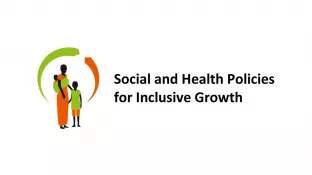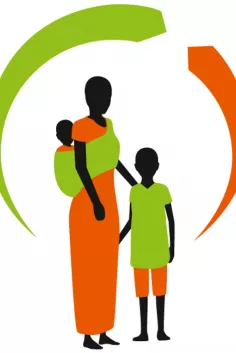SHPIG - Social and Health Policies for Inclusive Growth
Research project at a glance

Period
10.05.2015 to 09.07.2017
Website
Project Description

Social protection is increasingly seen as a relevant tool for bringing about inclusive growth. This is in line with the broader idea of comprehensive development, which considers social inequality and sustainability issues as priority concerns, and reflects a significant shift in perspective. Good health is an important component of comprehensive growth. Poverty and ill health are highly correlated and mutually reinforcing: high direct and indirect costs of access to treatment lead to poverty or exacerbate existing poverty. At the same time, poor people are more vulnerable to disease and disability (e.g., from poor nutrition). Cash transfers and social health protection have similar goals in this regard, but the relationship between the two has not been thoroughly studied.
This research aims to develop new strategic knowledge on the effectiveness of cash transfer programs and social health protection in Ghana and Kenya on the accumulation of health-related human capital and their spillover effects on broader intermediary inclusive growth objectives, including labor force participation, asset accumulation, and equity. It seeks to understand whether and under what conditions these policies complement each other. It extends existing research by combining cost-effectiveness with political economy considerations. Specific target groups are the extreme poor in general and poor women and vulnerable children in particular.
The research uses a cross-country comparison over time and combines econometric approaches with qualitative process tracing and an institutional approach.
A core objective of the project is to contribute to the dialogue between national and international actors from research and practice. This will be achieved through a multi-level and interactive process of co-production of knowledge between strategic actors in the process (e.g. researchers, ministries, NGOs). Therefore, in addition to the consortium members, which are stakeholders from academia and civil society, the project also involves the Ministry of Gender, Children and Social Protection (MoGCSP) of the Government of Ghana, the Ministry of Labor, Social Security and Services (MoLSSS) of the Government of Kenya, and the two nationwide NGOs Social Enterprise Development Foundation Western Ghana (SEND) and Kenya Community Based Health Financing Association (KCBHFA). The project will also work closely with the Knowledge Platform on Inclusive Development Policies - INCLUDE. The platform is one of five knowledge platforms initiated by the Dutch Ministry of Foreign Affairs to contribute to knowledge and effective policies in the Netherlands, other donor countries and developing countries.
Research subject
The research project examines the impact of social protection measures in Ghana and Kenya on the accumulation of health-related human capital and the associated spill-over effects on other goals of inclusive growth, such as labor market participation, capital accumulation, and equity. The research interest focuses on the question under which conditions social protection measures in case of illness and social cash transfers complement or substitute each other.
Method
A combination of cost-effectiveness analysis and political economy analysis is an extension of current research. Within a within-country comparison, econometric approaches are brought together with qualitative process-tracing and institutional economic approaches. Special attention is paid to the target group of the extreme poor, especially women and vulnerable children.
Impact
Initiating and intensifying the dialogue between national and international stakeholders from research and development practice is a core objective of the project. To this end, the project works closely with strategic actors from politics, civil society and academia. Therefore, in addition to the consortium members, the Ministry of Gender, Children and Social Protection (MoGCSP) of the Ghanaian government, the Ministry of Labor, Social Security and Services (MoLSSS) of the Kenyan government, as well as the two national NGOs Social Enterprise Development Foundation Western Ghana (SEND) and Kenya Community Based Health Financing Association (KCBHFA) are involved in the research project. The research project additionally collaborates with the Knowledge Platform on Inclusive Development Policies - INCLUDE.
Consortium
Bonn-Rhine-Sieg University of Applied Sciences
European Association of Development Research and Training Institutes (EADI)
University of Nairobi, Kenia
University of Ghana in Accra
University of Development Studies in Tamale, Ghana
Publications
Bender, K., Rohregger, B., Kinuthia, B., Ikua, G.,Schüring, E., Alatinga, K., Adamba, C., Pouw, N. (2021). Different pathways of social protection reforms: An analysis of long-term institutional change in Kenya. in: World Development, 131, https://doi.org/10.1016/j.worlddev.2020.105210
Pouw, N., Rohregger, B., Schüring, E., Alatinga, K., Kinuthia, B., & Bender, K. (2020). Social Protection in Ghana and Kenya through an Inclusive Development Lens: complex effects and risks, in: World Development Perspectives, https://doi.org/10.1016/j.wdp.2020.100173

